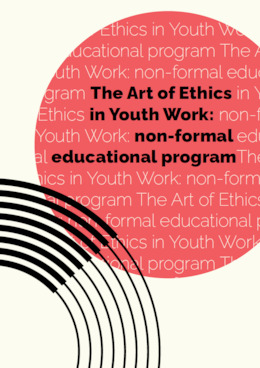Toolbox — For Training and Youth Work
All new tools in your inbox: Be the first to know about new tools for learning with our e-mail notifications.
Background Text
The Art of Ethics in Youth Work: Non - Formal Education Programme
The "Art of Ethics in Youth Work" NFE program is designed to improve the quality and recognition of youth work. It aims to raise awareness, build competencies, and provide tools to address ethical dilemmas, fostering a value-driven approach to youth work.
Aims of the tool
To enhance the quality and recognition of youth work by raising awareness of ethical challenges, providing evidence-based insights, and building the capacities of youth workers to apply ethical principles in their practices.
Description of the tool
Purpose:
The NFE programme highlights the critical role of ethics in youth work, addressing the moral responsibilities of youth workers and the unique challenges they face. It explores the interplay between ethical frameworks, youth work quality, and recognition, aiming to establish a shared understanding and support mechanisms for ethical youth work practices.
Methodology:
The NFE programme draws on evidence-based research, innovative methods, and practical tools to support youth workers. It includes theoretical frameworks, practical examples, and a curriculum for a non-formal course on ethics, which offers three levels of education tailored to youth workers' varying needs and experiences.
Learning Outcomes:
Understanding Ethical Principles: Youth workers will gain theoretical knowledge of ethics in youth work, grounded in Western models and adapted to diverse cultural contexts.
Critical Thinking and Moral Reasoning: Participants will enhance their ability to think critically and apply moral reasoning in complex and challenging youth work scenarios.
Boundary Setting: The handbook emphasizes the importance of establishing boundaries to foster safe, respectful, and effective learning environments for young people.
Skill Development: Youth workers will develop practical skills for addressing ethical dilemmas and engaging in reflective practices to continuously improve their work.
Mental Health Awareness: Participants will explore strategies for addressing emerging youth issues, including mental health challenges, antisocial behavior, and radicalization.
Shared Standards: The handbook promotes the development of common ethical standards to support consistency and quality in youth work practices.
Available downloads:
Disclaimer
SALTO cannot be held responsible for the inappropriate use of these training tools. Always adapt training tools to your aims, context, target group and to your own skills! These tools have been used in a variety of formats and situations. Please notify SALTO should you know about the origin of or copyright on this tool.
Tool overview

http://toolbox.salto-youth.net/4597
This tool is for
The "Art of Ethics in Youth Work" NFE programme is intended for youth workers, youth leaders, and policymakers who are committed to improving the quality of youth work through ethical frameworks and continuous education.
and addresses
Personal Development
It is recommended for use in:
Training and Networking
Behind the tool
The tool was created by
Branimira Penić, Valentina Gambiroža Staković and Darija Jeger
in the context of
KA2 project: The Art of Ethics in Youth Work
The tool was published to the Toolbox by
Branimira Penic (on 10 December 2024)
and last modified
29 November 2024
Comments
No comments have been posted yet.
If you want to comment on this tool, you need to be signed in with your MySALTO account. Sign in now